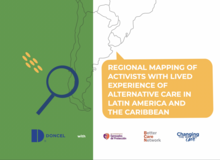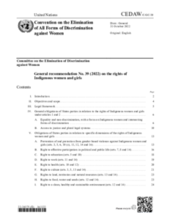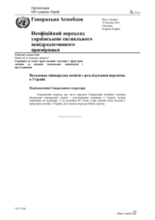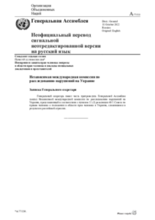Displaying 881 - 890 of 10391
This is the first regional mapping of activists with care experience in Latin America and the Caribbean.
The Committee highlights, in particular, the gravity of discrimination and gender-based violence against Indigenous women and girls with disabilities who are living in institutions.
Kinship care (care by extended family or friends of the family) is the most common form of alternative care in the region, yet also the least well-supported. This webinar explains why it is vital to invest in kinship care and provide examples of promising practic
Four Family for Every Child member organisations share their experiences and perspectives on supporting the mental health of vulnerable children, building on discussions from their last event:
У цьому звіті Незалежна міжнародна слідча комісія по Україні посилатиметься на висновки щодо подій наприкінці лютого та в березні 2022 року в чотирьох областях: Київській, Чернігівській, Харківській та Сумській, відповідно до вимог резолюції S-34/1 Ради з прав людини.
В этом отчете Независимая международная комиссия по расследованию событий в Украине будет ссылаться на выводы о событиях в конце февраля и марте 2022 года в четырех областях: Киевской, Черниговской, Харьковской и Сумской, как того требует резолюция Совета по правам человека S-34/1.
In this report, the Independent International Commission of Inquiry on Ukraine will refer to findings about events during late February and March 2022 in the four regions of Kyiv, Chernihiv, Kharkiv, and Sumy, as requested by Human Rights Council resolution S-34/1.
This was an interactive workshop organized and hosted by the Transitioning Residential Care Working Group as part of the Transforming Children’s Care Global Collaborative Platform.
The "Children of War" platform was created on behalf of the Office of the President of Ukraine as a tool for finding children, rescuing them and liberating them from places of forced displacement or deportation.
In this video, Changing the Way We Care (CTWWC) speaks to Catholic audiences in the U.S. and around the world who have supported children in residential care facilities – sometimes referred to as “orphanages” - about the importance of supporting children to stay with their families or be reintegrated from residential care into family care.





